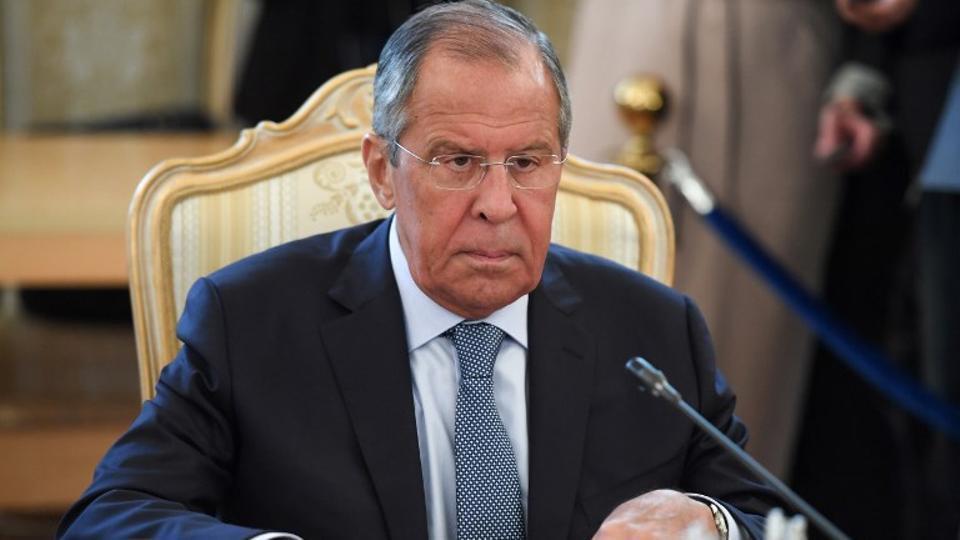Phnom Penh (FN), Sept. 29 – These days, the 74th session of the United Nations General Assembly opens up. So does a new international “political season”.
The session begins at a highly symbolic historical moment. Next year we will celebrate two great and interconnected anniversaries – the 75th Anniversary of the Victory in the Great Patriotic and Second World Wars, and the establishment of the UN.
Reflecting on the spiritual and moral significance of these landmark events, one needs to bear in mind the enormous political meaning of the Victory that ended one of the most brutal wars in the history of mankind.
The defeat of fascism in 1945 had fundamentally affected the further course of world history and created conditions for establishing a post-war world order. The UN Charter became its bearing frame and a key source of international law to this day. The UN-centric system still preserves its sustainability and has a great degree of resilience. It actually is kind of a safety net that ensures peaceful development of mankind amid largely natural divergence of interests and rivalries among leading powers. The War-time experience of ideology-free cooperation of states with different socioeconomic and political systems is still highly relevant.
It is regrettable that these obvious truths are being deliberately silenced or ignored by certain influential forces in the West. Moreover, some have intensified attempts at privatizing the Victory, expunging from memory the Soviet Union’s role in the defeat of Nazism, condemning to oblivion the Red Army’s feat of sacrifice and liberation, forgetting the many millions of Soviet citizens who perished during the War, wiping out from history the consequences of the ruinous policy of appeasement. From this perspective, it is easy to grasp the essence of the concept of expounding the equality of the totalitarian regimes. Its purpose is not just to belittle the Soviet contribution to the Victory, but also to retrospectively strip our country of its historic role as an architect and guarantor of the post-war world order, and label it a “revisionist power” that is posing a threat to the well-being of the so-called free world.
Interpreting the past in such a manner also means that some of our partners see the establishment of a transatlantic link and the permanent implanting of the US military presence in Europe as a major achievement of the post-war system of international relations. This is definitely not the scenario the Allies had in mind while creating the United Nations.
The Soviet Union disintegrated; the Berlin Wall, which had symbolically separated the two “camps,” fell; the irreconcilable ideological stand-off that defined the framework of world politics in virtually all spheres and regions became a thing of the past – yet, these tectonic shifts unfortunately failed to bring the triumph of a unifying agenda. Instead, all we could hear were triumphant pronouncements that the “end of history” had come and that from now on there would be only one global decision-making center.
It is obvious today that efforts to establish a unipolar model have failed. The transformation of the world order has become irreversible. New major players wielding a sustainable economic base seek to increase their influence on regional and global developments; they are fully entitled to claim a greater role in the decision-making process. There is a growing demand for more just and inclusive system. The overwhelming majority of members of the international community reject arrogant neocolonial policies that are employed all over again to empower certain countries to impose their will on others.
All that is greatly disturbing to those who for centuries have been accustomed to setting the patterns of global development by employing exclusive advantages.
While the majority of states aspire to a more just system of international relations and genuine rather than declarative respect for the UN Charter principles, these demands come up against the policies desighned to preserve an order allowing a narrow group of countries and transnational corporations to reap from the fruits of globalization. The West’s response to the ongoing developments reveals true worldview of its proponents. Their rhetoric on liberalism, democracy and human rights goes hand in hand with the policies of inequality, injustice, selfishness and a belief in their own exceptionalism.
“Liberalism”, that the West claims to defend, focuses on individuals and their rights and freedoms. This begs the question: how does this correlate with the policy of sanctions, economic strangulation and overt military threats against a number of independent countries such as Cuba, Iran, Venezuela, North Korea or Syria? Sanctions directly strike at ordinary people and their well-being and violate their social and economic rights. How does the bombing of sovereign nations, the deliberate policy of destroying their statehood leading to the loss of hundreds of thousands of lives and condemning millions of Iraqis, Libyans, Syrians and representatives of other peoples to innumerable suffering add up to the imperative of protecting human rights? The reckless Arab Spring gamble destroyed the unique ethnic and religious mosaic in the Middle East and North Africa.
In Europe, the proponents of liberal concepts get along quite well with massive violations of the Russian-speaking population rights in a number of EU and EU-neighboring countries. Those countries violate multilateral international conventions by adopting laws that infringe language and education rights of ethnic minorities.
What is “liberal” about visa denials and other sanctions imposed by the West on residents of Russia’s Crimea? They are punished for their democratic vote in favour of reunification with their historical homeland. Does this not contradict the basic right of the people to free self-determination, let alone the right of the citizens to freedom of movement enshrined in international conventions?
Full story at: https://eng.globalaffairs.ru/book/World-at-a-crossroads-The-future-system-of-international-relations-20199
=FRESH NEWS





